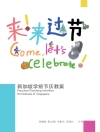This essential and aspirational text is aimed at all beginning teachers whatever your training route, age phase and setting. It explicitly adopts and builds on a new metaphor for teachers’ professional learning as interplay between the body of public knowledge and the practical wisdom of teachers within a particular school setting. It also accepts that ‘telling’ you how to teach is ineffective; you need to ‘become a teacher’ because it involves identity and practice. Inquiry-based critically reflective learning with a clear focus on the learning of pupils is proposed as the core strategy by which you can build your knowledge and skills to become an outstanding teacher.
Core topics, including planning, inclusion, teaching, assessment and professional development, are tackled in an accessible and refreshing way, using key research informed evidence. The focus is relentlessly on ‘learning’ rather than performance, in order to support you becoming an excellent professional teacher, rather than a competent technician, who makes a difference to learners, colleagues, schools and policy. Think of this book as a temporary or additional mentor, challenging you with different ways of thinking about learning and providing strategies to guide your professional learning.
“It takes 10 years or more to begin to be a brain surgeon, but sometimes we get 1-3 years at most before we are allowed to work with children’s brains as teachers. So we need inspirational teachers and this is the focus of this compact, powerful and insightful book. It is wonderfully designed around five of the most critical dilemmas in our classrooms: belief vs. ability; autonomy vs. compliance; abstract vs. concrete; feedback vs. praise; and collaboration vs. competition. The power of the book is that it illustrates the new move to focus on learning power – and such a focus permits every student to become smarter through effort and deep practice as they struggle with the high-challenge learning activities – in the presence of inspirational, impactful and passionate teachers. The perfect book for those who want to make most of their opportunity to enhance students’ brain power.”
John Hattie, Director, Melbourne Education Research Institute
Tabela de Conteúdo
Chapter 1 Practical wisdom and public knowledge
Chapter 2 Belief versus ability
Chapter 3 Autonomy versus compliance
Chapter 4 Abstract versus concrete
Chapter 5 Feedback versus praise
Chapter 6 Collaboration versus competition 120
Chapter 7 Epilogue: getting it all together
Sobre o autor
Karen Lockney is a senior lecturer at the University of Cumbria teaching on undergraduate primary and secondary initial teacher education programmes. She also teaches and supervises experienced teachers on the MA in Education.












